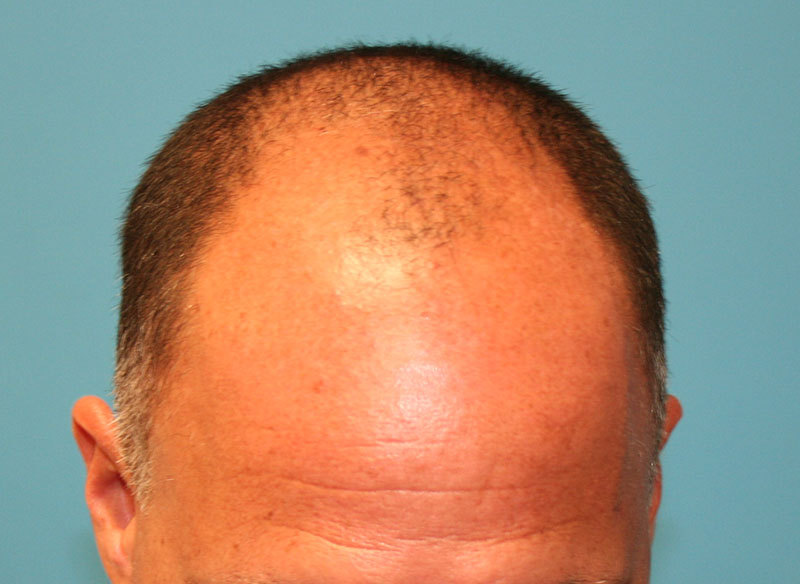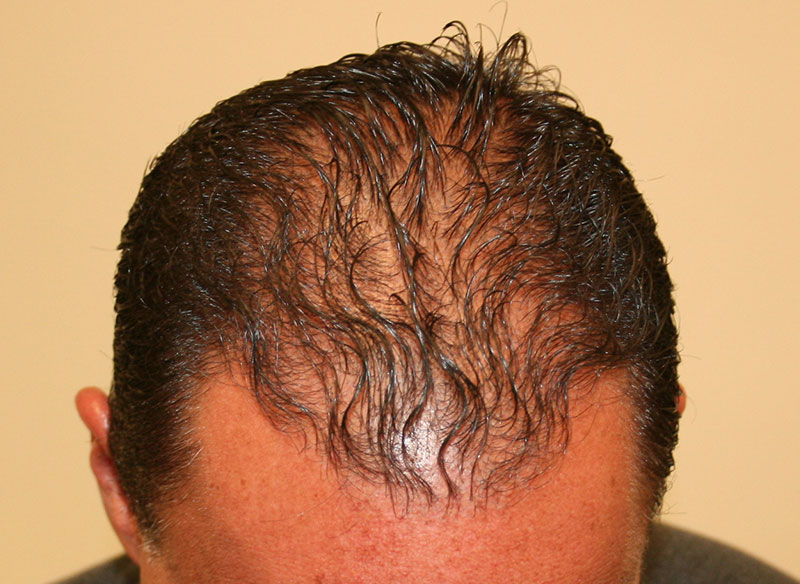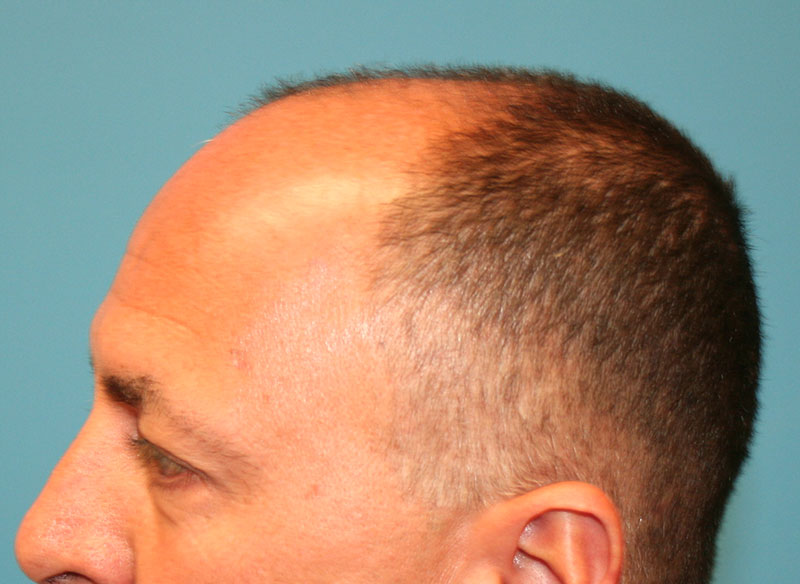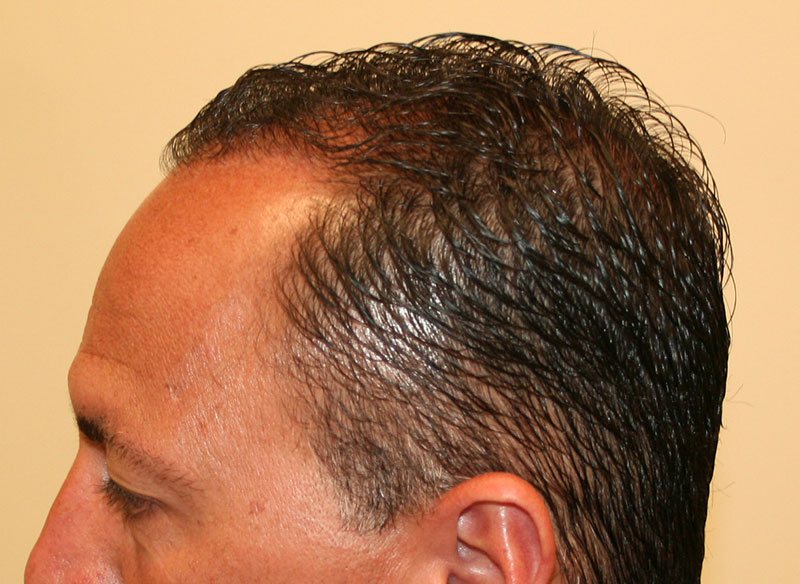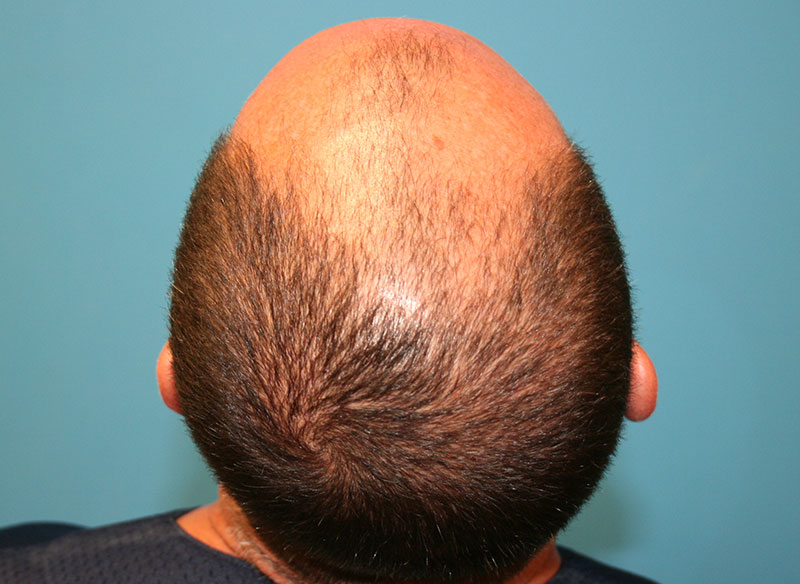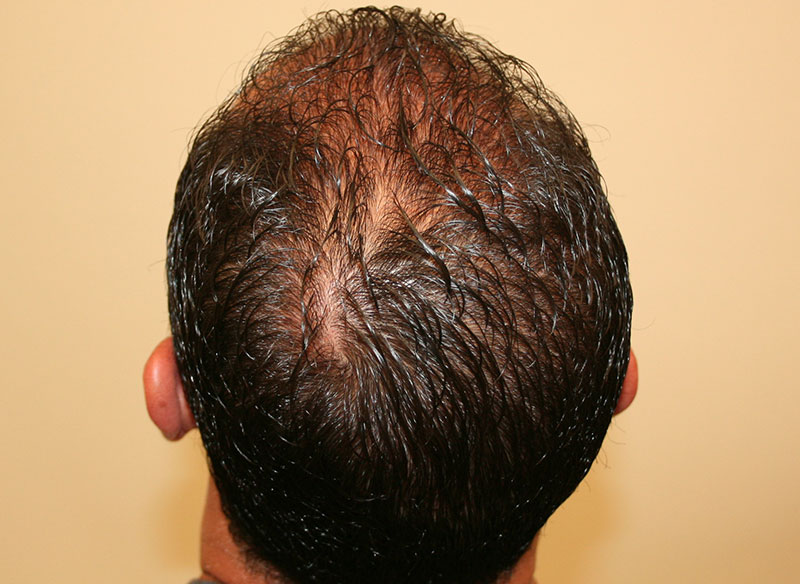Follicular Unit Grafting (FUG) Boca Raton
Conveniently located to serve Boca Raton, Delray Beach, Palm Beach, Fort Lauderdale, Miami, Miami Beach, Naples, Orlando, Tampa, Jacksonville, surrounding areas, throughout the US, and abroad.
Follicular Unit Hair Grafts
Hair transplantation is essentially a two-part procedure.
In the first part, hairs are taken from the donor region of your scalp, the back of the head where hairs are typically resistant to male pattern baldness. In the second part of the procedure, these hairs are transplanted into the balding areas.
The two leading methods of
hair transplantation (FUT), Follicular Unit Excision (FUE), and Follicular Unit Transplantation are essentially the same when it comes to the second part of the procedure. Where the two procedures differ is in their method of extracting/harvesting donor hairs.
FUT, the traditional method, excises thin strips of hair from the donor region and then dissects these strips into grafts of individual follicular units containing one, two, three, or four hairs. (By contrast, FUE extracts these individual grafts directly from the scalp, one at a time.) These hairs are then transplanted into tiny receptor sites in the balding areas that are made at specific angles and directions by Dr. Charles.
Dr. Glenn Charles’s Approach
Each doctor has a process for determining candidacy for Follicular Unit Transplantation.
Dr. Charles‘s approach to determining candidacy is similar to a mathematic equation. During a consultation, he gathers and analyzes the required data to arrive at a scientifically informed conclusion.
Dr. Charles measures the size of the patient’s entire head, the size of the donor area (back of the head and sides behind the ears), and the density of the donor area.(hairs per sq. in.)
He also measures the extent of hair loss or thinning in the area targeted for transplantation. If there is hair left in the area, this is a vital aspect of the evaluation.
Many factors are taken into account when determining candidacy for hair transplantation, including age, family history, and area of hair loss. Dr. Charles always takes the time needed to fully understand the expectations of each patient, since this information lays a major role in the process.
Dr. Charles uses the data gathered during each patient consultation to project their future hair loss and present them with worst-case scenarios. Patients must consider these scenarios when deciding whether to undergo a hair transplant procedure.
Follicular Unit Transplantation Before And After Photos
Photo Gallery
View before-and-after pictures of real patients of Dr. Glenn Charles
FUT leaves thin linear scars in the donor area. Hair will grow through these scars and they are very well concealed. When you’re fully healed from your FUT procedure, the scars will be very difficult to detect, even on close inspection.
The FUT procedure has some important advantages and disadvantages when compared to FUE. More hairs can be transplanted in a single session of FUT than in a session of FUE. If your hair restoration goal requires a very high number of grafts, you might require more sessions of FUE than you might if we used FUT. You might even just need the one session of FUT! Also, when compared to FUE, FUT is significantly less expensive.
Everyone made me feel very comfortable…
My hair has been growing in quite well. You can tell Dr. Charles that he has done a fine job. I feel much better about my hair, and I have gotten compliments from my family and friends. The results have definitely made me feel and look younger. Everyone made me feel very comfortable while I was at the clinic.
David
FUT has a few disadvantages, however. Because it does require incisions, men who wear their hair very short (a crewcut, for example) might want to consider FUE instead. Also, because sutures are required to close the incisions in the donor area, recovery from FUT is slightly longer than from FUE.
Contact Charles Medical Group today to schedule your Follicular Unit Transplantation complimentary consultation. Dr. Glen Charles has been serving the areas of Miami, Fort Lauderdale and Del Ray Beach for years and is a pioneer in hair transplant surgery. If you are looking to restore lost or thinning hair,
schedule your free consultation today!
FAQ’s
-
How old do I have to be to get a Hair Transplant?
There is no specific age to be a candidate for hair transplantation. In most cases we prefer the patient to be over 25yrs old but there are always exceptions to the rule. Each patient should be looked at based upon their particular circumstances.
-
Can anyone get a hair Transplant?
Not all people are candidates for hair transplantation. It really depends on several factors including amount of hair loss, quality of donor hair, type and color of hair, patient’s expectations and cause of hair loss.
-
How can I know if I’m a good candidate for Hair Transplant?
It is important to set up a consultation to discuss your options and see if you are a good candidate. A hair restoration physician would have to determine if a person is a candidate for hair transplantation. An in office consultation is preferable but if not possible a virtual on-line consultation can also be done.
-
Can I get hair transplanted from someone else?
This would only be possible if you have an identical twin. If you received hair, follicles from someone else your body would likely reject it. I have performed a hair transplant on a set of identical twins, and it was very successful.
-
What kind of complications can I get from a Hair Transplant?
Although complications /side effects from a hair transplant procedure are rare. The possibilities include but are not limited to:
- Infection
- Bleeding
- Swelling of the scalp
- Bruising around the eyes
- Inflammation of the hair follicles
- Shock loss
- Itching
-
Does a Hair Transplant leave a scar?
There is no such thing as a completely scar less Hair Transplant, no matter whether you use a strip procedure or a follicular unit extraction. Any time an incision is made in the skin some form of scar will always be left behind. Keep in mind that the scar from hair transplantation procedures are very easily covered with a small amount of existing hair.
-
What medical conditions can cause hair loss?
There are several medical conditions that can cause hair loss including but not limited to thyroid disease, hormonal imbalance and iron deficiency. There are also many prescription medications that can have hair loss as a side effect. Medical conditions need to be ruled out before a patient considers having a hair transplant.
-
Can I get hair transplanted in my beard?
Yes. Hair transplantation to the beard has become much more popular and the results are often very impressive. Check out our
full gallery and see the options that are available to you
-
CAn stress cause my hair loss?
Hair loss caused by stress in a person who does not have a gene for hairloss would likely have all their hair back and the loss would be temporary. Increased stress levels in individuals with the gene foe genetic hair loss would see the speeding up of the hair loss process and begin to see the pattern that may have taken many more years to notice had they not experienced the increase in stress
-
How do I prepare for my Hair Transplant Surgery?
Depending on the type of surgery, you need to undertake some preoperative preparation. This may include avoiding certain medications including but not limited to aspirin and any blood thinners. Also, we recommend discontinuing any multi vitamins and the use of alcohol for 1 week prior to surgery.
-
How painful is the Hair Transplant surgery?
The pain associated with a hair transplant surgery is mainly in the first 5-10 minutes when local anesthetic is injected into the recipient and donor areas. With the FUT procedure there may also be some soreness in the donor area for 2-3 days following the surgery.
-
How long does the Hair Transplant surgery last?
It would depend on the number of grafts that you are getting, and the type of procedure you are having. Generally, the surgery lasts between 4-6 hours. There are other factors including but not limited to the patient clotting ability and type of skin that can also play a role in how long an HT procedure takes.
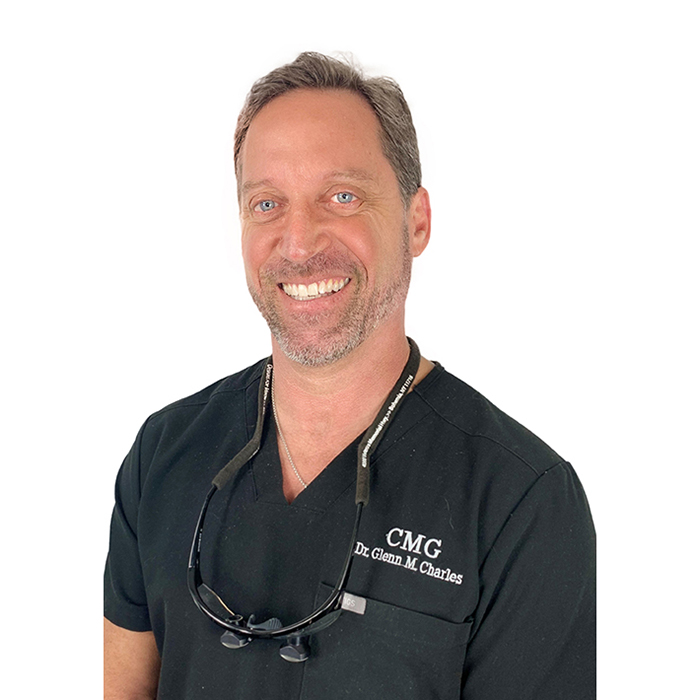
Meet The Doctor
Dr. Glenn Charles was born in Buffalo, New York and raised in the suburbs of Detroit, Michigan. After receiving his undergraduate degree from Michigan State University he obtained his medical degree from Nova Southeastern University School of medicine in North Miami Beach, Fl. Dr. Charles then completed an internship and residency at Michigan State University affiliated hospitals before acting as the primary physician trainer in hair transplant surgery for a large hair transplant organization from 1997-1999. He opened his own boutique private practice, Charles Medical Group in 1999.
Learn More

